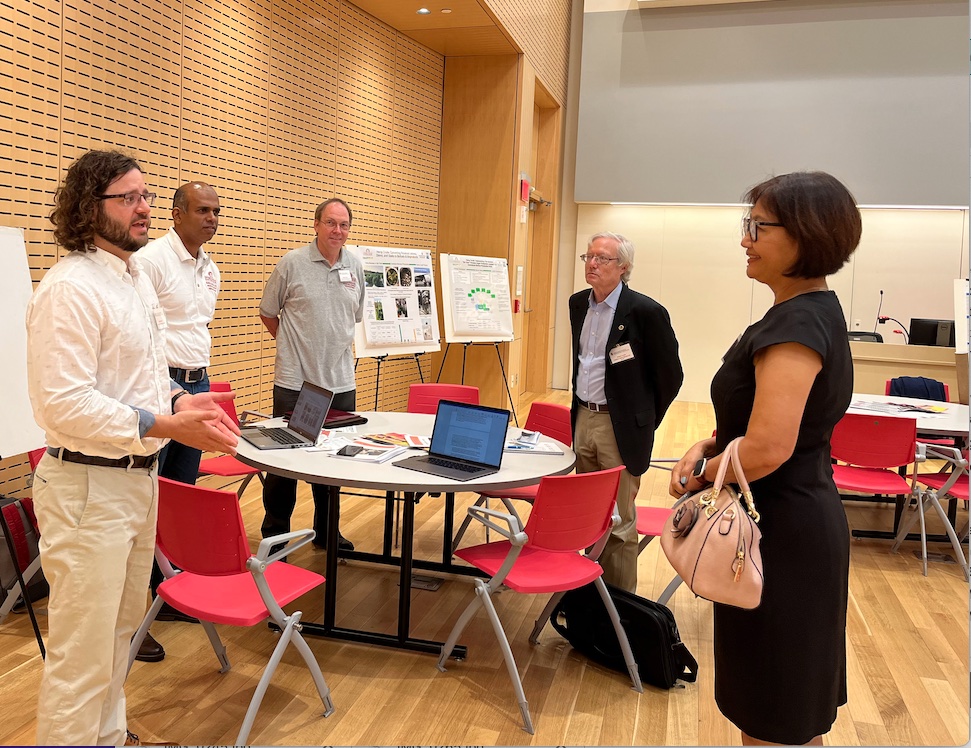Eligibility: All full-time tenure-track or professional track faculty members at any higher education institution with graduate program(s) and relevance to energy technology within the state of Maryland or Maryland based companies affiliated with and commercializing inventions created by those faculty.
Program Focus: The intent of the program is to foster commercialization by translating energy research into a prototype device or process through technology development, creation and/or advancement of university start-up companies within the state of Maryland.
Expectations: The project should advance energy technology and economic growth in Maryland. The device or process should have appropriate intellectual property protection (invention disclosure, patent application, or patent) filed with the applicant institution. At the end of one year, a report that describes work done and includes a plan for the next steps toward commercialization will be the final deliverable for the project. The plan should include: 1) clear assessment of technical readiness (including ultimate cost and scalability) of the product; 2) a survey of potential customers for the product; and 3) a strategy for next steps in financing the plan.
Review: Funding for the seed grants will be awarded on a competitive basis. The MEI2 Investment Committee will review and select proposed projects. Applicants should not expect detailed written critiques of their proposals. Proposals will be reviewed for: 1) innovation and technical merit, 2) the likelihood of attracting follow-on funding, and 3) potential for commercialization.
Overview
During the annual MEI2 Advisory Board meeting, the Board recommended that, given the limited available resources, that Phase-3 (Bridge) awards should focus on the required company cost share for federal proposals/awards. Secondary consideration should be for company operating funds after receiving an award during the time between start of work and payment of first invoice as start-up companies may struggle to find cash resources to finance this gap.
Therefore, new this fiscal year is the addition of the Energy Bridge Fund. Applications will be accepted on a rolling basis and will require a different process. Awards will be distributed on a rolling basis and dependent upon receipt of the non-dilutive funding. Should a recipient not receive the follow-on funding, the award funds will remain with the MEI2 Investment Committee to be redistributed. Funds may be used as operating funds while waiting for the non-dilutive funded project to begin. An annual progress report should be provided to the MEI2 Investment Committee. These awards are meant to provide and support companies that: (a) need cost share for federal or state proposals/awards; (b) need operating funds for work and payment prior to receiving their award funding. If you/your start-up company have received a federal award and feel you are a candidate for this Bridge Fund and have any questions, please contact the MEI2 office (csteph5@umd.edu) for further information.
Eligibility: Former Energy Seed Fund recipient
Qualifications: 1) Copy of proposal for the SBIR/STTR, federal or other non-dilutive funding that is being applied for or has been received; 2) total bridge funds requested (max 20% of total project cost up to $250k); 3) statement of how the funds will be used – priority will be given to company cost share for large federal/state grants and secondary considerations for company operating funds after receiving an award, but prior to start of said award; 4) Current and pending report related to the proposal.
Review: Funding for the seed grants will be awarded on a competitive and rolling basis.
Download the form here.
